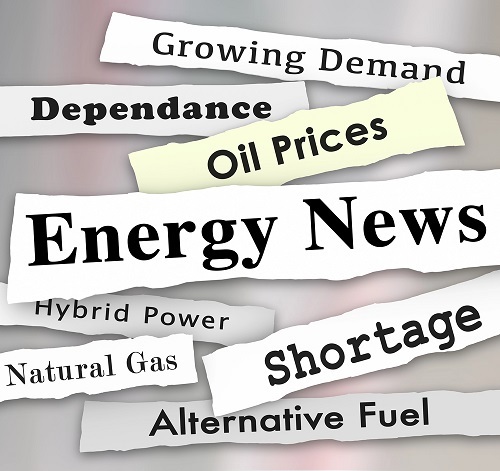Deep Dive: Peter Van Doren on Energy Independence
July 3, 2022

One of the broadest Great Antidote podcasts to date: long-standing tensions between foreign policy experts and economics experts; challenges with expansion and adoption of wind and solar technologies; lessons from the Fukushima nuclear disaster and so much more. Sellgren and Van Doren invite you think deeper and broader about energy markets near and far.

One of the broadest Great Antidote podcasts to date: long-standing tensions between foreign policy experts and economics experts; challenges with expansion and adoption of wind and solar technologies; lessons from the Fukushima nuclear disaster and so much more. Sellgren and Van Doren invite you think deeper and broader about energy markets near and far.
In this episode of The Great Antidote, guest Peter Van Doren and host Juliette Sellgren discuss energy.
- What is energy independence?
- Should Americans aspire to be energy independent?
- How much weight should foreign policy considerations matter in energy markets right now?.
- What are nuclear and green energies? How can they help?
Van Doren draws on his research on energy policy. He is the editor of the quarterly journal Regulation and a senior fellow at the libertarian public policy think tank the Cato Institute.
Sellgren asks, “What should young people know that we don’t?” Van Doren says ignorance about the history of energy and specifically the oil shock of 1972-1975. Van Doren then talks about how prices in world markets are determined and addresses some misconceptions about the role of the Saudi Oil Embargo. Van Doren instead points to Richard Nixon’s price controls and domestic allocations.
About 27:25 minutes in, Sellgren and Van Doren talk about how the current Russia context is different (and similar to) previous examples he’s mentioned.
In their discussion, it’s clear that there’s a tension between foreign policy goals and economic goals. Van Doren comes down on the side of economists and raises some questions about the effectiveness and costs of allowing foreign policy too much power in putting trade restrictions into place.
In their discussion, it’s clear that there’s a tension between foreign policy goals and economic goals. Van Doren comes down on the side of economists and raises some questions about the effectiveness and costs of allowing foreign policy too much power in putting trade restrictions into place.
Key Quote
“When shocks occur, for whatever reason, be it war or alleged foreign policy disruptions, when a country says I’m not going to sell to you any more because I want to punish you, either of those things. During those times people who don’t believe in trade then come out the woodwork and say see what trade gets you, it’s totally unpleasant. The previous 25 good years of good stuff from trade get lost in that discussion.”
Van Doren speaks to how to think about cost-benefit questions from a longer-term perspective and also suggests that looking at the economic history and public policies of stockpiling is a good place for people interested in this topic to begin their reading.
About 33:33 they begin their discussion of the possibilities of using green energy like wind and solar power or nuclear energy to address climate and other concerns. Van Doren also discusses why the nuclear disaster in Chernobyl (in Ukraine in the 80s) isn’t as relevant as the Fukushima nuclear disaster in Japan and suggests that people overestimate the harms from disasters like Fukushima and underestimate the harms from high energy prices and pollution associated with other energy forms.
At 51:19 you can also hear Van Doren’s take on the famous “assume a can opener” joke which pokes good fun at economists.
One thing he’s changed his mind about is whether the economic understanding of producer embargos can be similarly applied to situations where there are consumers embargoing producers. He says it hasn’t been what energy discussions were about until recently and maybe consumer embargos, especially in the case of natural gas where it’s harder to disguise the origins unlike oil, will teach us something new.
This is Peter Van Doren’s second time on the Great Antidote podcast. You can listen to his first episode on the scientific method, risk-aversion, and quantifying the economic value of a life.
Listen to this episode
The guest
- Professional profile
- Regulation magazine
- Recent Free Thoughts podcasts:
- “Is Nuclear Power Worth It?” (2022)
- “Who Messed with Texas’s Electricity?” (2021)
- Obituary for Morris Adelman
- Commentary on “Be Cautious with the Precautionary Principle: Evidence from Fukushima Daiichi Nuclear Accident,” by Matthew J. Neidell, Shinsuke Uchida, and Marcella Veronesi. October 2019. NBER #26395.
Other Liberty Fund related content
- David Henderson on Energy Independence (EconLog)
- Reading guide on Environmentalism (EconLib)
- Todd Royal's California Makes Energy a Luxury Good (Law&Liberty)
- Samuel Thernstrom's Energy in the Executive (Law&Liberty)
Mentioned in this podcast
- M.A Adelman’s Genie Out of the Bottle: World Oil since 1970
- Adelman’s article “The Real Oil Problem” in Regulation magazine
Resources compiled by Christy Lynn